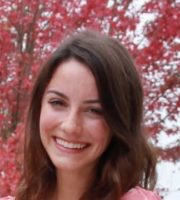
Nursing and biology students help professor conduct research on herd immunity
A biology professor at Franciscan University of Steubenville has started a study to look at herd immunity, while ensuring that his research also upholds pro-life principles.
Part of Professor Kyle McKenna’s research into herd immunity involved the development of an antibodies test that “did not utilize any materials produced in cell lines derived from aborted fetal tissue,” he said.
“The Catholic Church has indicated the need for alternatives to the use of cell lines, derived from tissues of elective abortions, in vaccines and medical testing,” McKenna told The College Fix via email. “We saw the opportunity to provide an alternative by creating a test for evaluating antibody responses to SARS-CoV-2 that used no materials that were produced in cell lines derived from elective abortions,” McKenna said.
The need for research based in pro-life ethical guidelines helped the study receive funding from a group opposed to abortion.
“American Life League is proud of the work Dr. McKenna and his team have accomplished,” Katie Brown told The College Fix via email. The Virginia-based pro-life group provided grant money for the research.
“We believe his research will be vital when it comes to better understanding the Coronavirus and the process of achieving natural herd immunity,” the director of media relations said.
“Initial costs for the research were covered by the Biology Department and the Franciscan Institute of Science and Health,” the Catholic university in Ohio said in an April news release, before thanking the pro-life group for its financial support.
Scientific research exploits cells from aborted babies
The practice of using cells derived from aborted fetal tissue in medical research, testing, and vaccine development has been going on for years. Pharmaceutical companies have been using cells from HEK293 and PER.C6, the two major fetal cell lines, for decades.
“The utilization of embryonic and fetal cells from elective abortions in the pharmaceutical industry and medical research is commonplace,” Professor McKenna said in a 2018 article for the Linacre Quarterly, a peer-reviewed academic journal and the official journal of the Catholic Medical Association.
All of the currently available American COVID vaccines have a connection to aborted fetal tissue, according to the Charlotte Lozier Institute, a pro-life think-tank connected to the Susan B. Anthony List.
Relies on blood samples to determine herd immunity
His research, which began in April, has included the taking of blood samples from 507 participants and “[d]ata is currently being analyzed.”
Nursing and biology students have been able to gain hands-on experience in conducting research.
“We solicited FUS university students, faculty, and staff in classes and through university bulletins to participate in our IRB approved study,” McKenna told The Fix. “After providing informed consent a blood sample was taken from participants by senior nursing students under direct supervision by Department of Nursing faculty.”
“The PCR test will indicate exposure only when the patient harbors virus,” McKenna said. “The antibody test indicates exposure even after the virus has been eliminated,” the professor explained. “Both tests tell whether you have been exposed to SARS-CoV-2, the virus that causes COVID.”
“[A]ntibody responses are long lasting and provide an indicator of the percentage of individuals who have mounted an immune response to SARS-CoV-2,” McKenna said, “either through natural exposure or vaccination.”
MORE: Pitt researchers are reportedly using illegal fetal tissue for rat grafting experiments
Editor’s note: Kyle McKenna is the father of College Fix contributor Alex McKenna.
IMAGE: MongkolchonAkesin/Shutterstock.com
Like The College Fix on Facebook / Follow us on Twitter






Please join the conversation about our stories on Facebook, Twitter, Instagram, Reddit, MeWe, Rumble, Gab, Minds and Gettr.